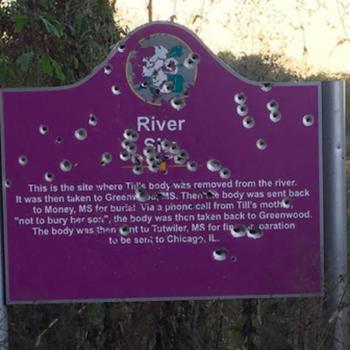A Guest Post by Rachel Lazerus
Over a decade ago, one of my college classmates, who happened to be an atheist, asked me to read an essay she’d read online about the Passover seder and give her my opinion. The article was by someone raised Jewish who was a famous, bestselling author. It talked about how growing up, her favorite part of the seder was pouring out ten drops of wine to represent the Ten Plagues. Now, as an adult, she can’t handle the seder because celebrated the death of the Egyptians. Twice, she calls it “genocide without apology” in her article.
The reason why we dip our fingers into the winecup and spill out sixteen drops — ten times for the plagues, three for the abbreviation of the plagues, and three more times for other destruction — is because we are remembering the pain and suffering of the Egyptians, and are mourning their dead. Even on this night where we are celebrating our redemption from Egypt, we do not want to forget the suffering endured even by those who had enslaved us.
The Ten Plagues is a great story to dramatize for children. My grandfather would throw little frogs and snakes out on the table to amuse us little kids, because it’s a long meal, and it’s a lot of talking. People want kids to be involved in their religion, even before they’re capable of understanding the meaning behind everything. They want kids to think of Passover as a time of joy, which it is.
However, I was taught this from a very early age: we do not rejoice at the passing of our enemies. We do not rejoice because the Egyptians were killed. We are glad because God has granted us our freedom: unfortunately, that came at a cost. We spill out the wine because we are sad that Egyptian lives were lost; when I have dipped sixteen times into my cup of wine and placed them on my plate, they look like blood, or tears.
I’m very upset that the exact kernel — the drops of wine being spilled — of us mourning the Egyptian lives is what is used as the proof of us doing the opposite. There’s plenty to hate about the Passover seder. You can say it’s boring, you can say it’s too long, you can say it’s out of touch with the needs of Jews nowadays, you can say it’s biased, you can say it needs to be updated. But you cannot make the argument that it does not acknowledge the suffering of the Egyptians while simultaneously bringing up the fact that we dip our fingers into the wine. Why would you think we do that — because it improves the flavor? We dip our fingers in the wine in remembrance of those who lost their lives because we gained our freedom. That is the meaning behind those sixteen drops.
What was confined to atheist websites a decade ago is now easy to disseminate on Reddit. I’d never heard anyone calling Passover a genocide but this author — now it’s everywhere, again. And this lie, that Jews celebrate the death of Egyptians every year, is linked to the medieval blood libel that Jews use babies’ blood to prepare our ceremonial food, a lie that has cost thousands of Jewish lives over the centuries and is still used today as justification for the persecution of Jews.
And just as it is wrong to misrepresent the facts of the seder, as though it is condoning murder or genocide, just because you personally are ignorant of the facts of the seder, it is wrong in every situation to do this as well. It is wrong to speak out of ignorance, make a “hot take” and profit off of ignorance. In modern terms, it’s wrong to pass along fake news.
I’ve never read another thing by the author of that article, never read her books when they were recommended or willingly clicked on her column in the Guardian. It was my first lesson in fake news, of being unable to trust a well-intentioned messenger. It made me read critically, even from sources that told me what I wanted to hear. It stripped me of my innocence and made me wary.
In these times of rising hatred and bigrotry of every stripe, of increased polarization, of epistemic closure becoming a virtue, the need to be true and read carefully, not to misrepresent, has become more essential than ever. I have striven never to spread articles based off of ignorance the way this article was passed to me so many years ago. May we all take that as our guiding credo.
Note from Libby Anne: I grew up in an evangelical home. Most of my knowledge about Judaism came from reading the Bible. Years later I realized how little information these texts actually provide modern Judaism or the history of Judaism. The New Testament was written by early Christians who defined themselves in opposition to Judaism, and was not an unbiased account of Jewish life and customs; Jewish understandings of the Tanakh are supplemented by the Midrash, commentaries little studied in evangelical circles. Individuals from Christian traditions frequently think they know more about Judaism than they do. Several years ago I put together a series titled Judaism 101 in which a panel of Jewish readers responded to questions about Judaism. Rachel Lazerus was one of the participants, and her guest post here continues this conversation.















